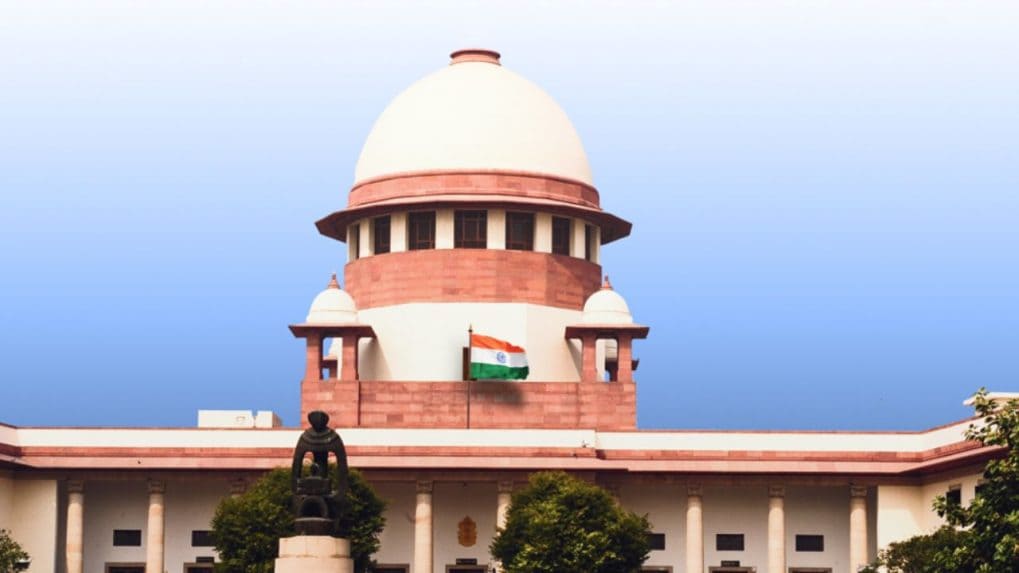Digital
Why OpenAI is hiring 100 ex-bankers: Inside the ChatGPT-maker's secret project to automate Wall Street's grunt work

The Supreme Court on Friday began hearing a public interest litigation (PIL) seeking a nationwide prohibition on online gambling and betting platforms allegedly operating under the guise of social and esports games. A Bench comprising Justice JB Pardiwala and Justice KV Vishwanathan heard the matter, which has been filed by the Centre for Accountability and Systemic Change (CASC), and directed the Union Government to examine the issues raised in the plea.
During the hearing, the petitioner argued that while the Centre has positioned itself as a “gatekeeper” by issuing blocking orders under the Information Technology (IT) intermediary rules, there is no explicit legislative ban on online gambling and betting. “As per the Constitution’s Seventh Schedule, gambling and betting fall under the purview of state governments. However, the Centre has the power to block platforms. Around 1,528 gaming apps have already been blocked, according to a parliamentary reply,” the petitioner submitted.
Reading out from a Press Information Bureau (PIB) note, the petitioner highlighted a significant legal gap. The note claims that online betting, gambling and lotteries would be blocked under the new IT rules, but the actual law does not expressly prohibit these activities. “The new law endorses e-sports and social games, but nowhere does it ban betting and gambling,” the counsel stated, underscoring the inconsistency between government communications and statutory provisions.
The petitioner also drew the Bench’s attention to a list of over 1,000 real-money gaming apps available on Apple and Google platforms, submitted as part of the plea. Urging urgent intervention, counsel said, “These platforms are required to comply with the IT intermediary rules. My humble request is that some action be taken before Deepavali,” pointing to the recent death of a 13-year-old boy in Kanpur after playing a prohibited online game.
Taking note of these concerns, the Bench directed that a copy of the petition be handed over to Chandrashekar Venkataraman, the standing panel counsel for the Union Government, to examine the matter and assist the court. “Look into it thoroughly and come back to us,” the Bench instructed.
The petitioner also emphasized the need for stronger public awareness campaigns, asserting that despite government advertisements, “more than 1,000 children have died.” It sought clearer warnings and more stringent enforcement measures against gaming platforms.
Filed on October 13 through advocates Virag Gupta and Rupali Panwar, the PIL names six respondents: the Union Ministries of Electronics and Information Technology; Information and Broadcasting; Finance; Youth Affairs and Sports; along with Apple Inc. and Google India Pvt. Ltd. CASC is represented by former Uttar Pradesh DGP Vikram Singh and Shourya Tiwari.
The petition urges the Supreme Court to direct multiple Union ministries to interpret the provisions of the Promotion and Regulation of Online Gaming Act, 2025, along with state laws, to prohibit online betting and gambling games masquerading as social and esports platforms.
Citing reports that over 65 crore Indians are engaged in such games—generating annual revenues of more than ₹1.8 lakh crore—the petitioner argued that the unchecked spread of online gambling is inflicting widespread social, economic and national security harms. The PIL calls the rapid expansion of online gaming a “national crisis,” linking it to financial distress, mental health issues, and suicides.
The plea also seeks directives to the Reserve Bank of India (RBI), National Payments Corporation of India (NPCI), and UPI platforms to prevent financial transactions involving unregistered gaming applications. It calls for investigations into offshore gaming operators through Interpol, the CBI and the Enforcement Directorate, alleging tax evasion of over ₹2 lakh crore.
Additionally, the petition raises alarm over the use of celebrities and cricketers to endorse such platforms, arguing that these promotions fuel cyber fraud, addiction, and money laundering through opaque algorithms.
The Supreme Court’s intervention sets the stage for a potentially significant legal interpretation on the regulation of online betting and gambling in India, at a time when the industry continues to grow rapidly despite mounting concerns over its social impact.
In a wide-ranging interview with Storyboard18, Sorrell delivers his frankest assessment yet of how the deal will redefine creativity, media, and talent across markets.